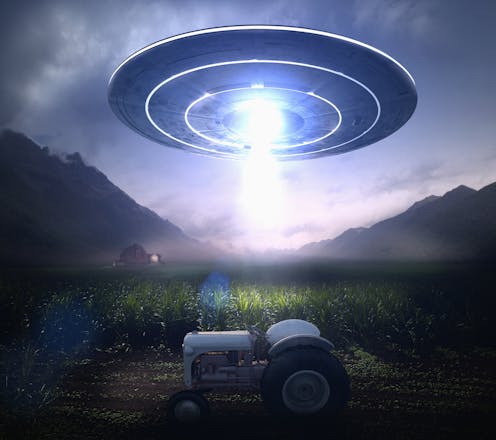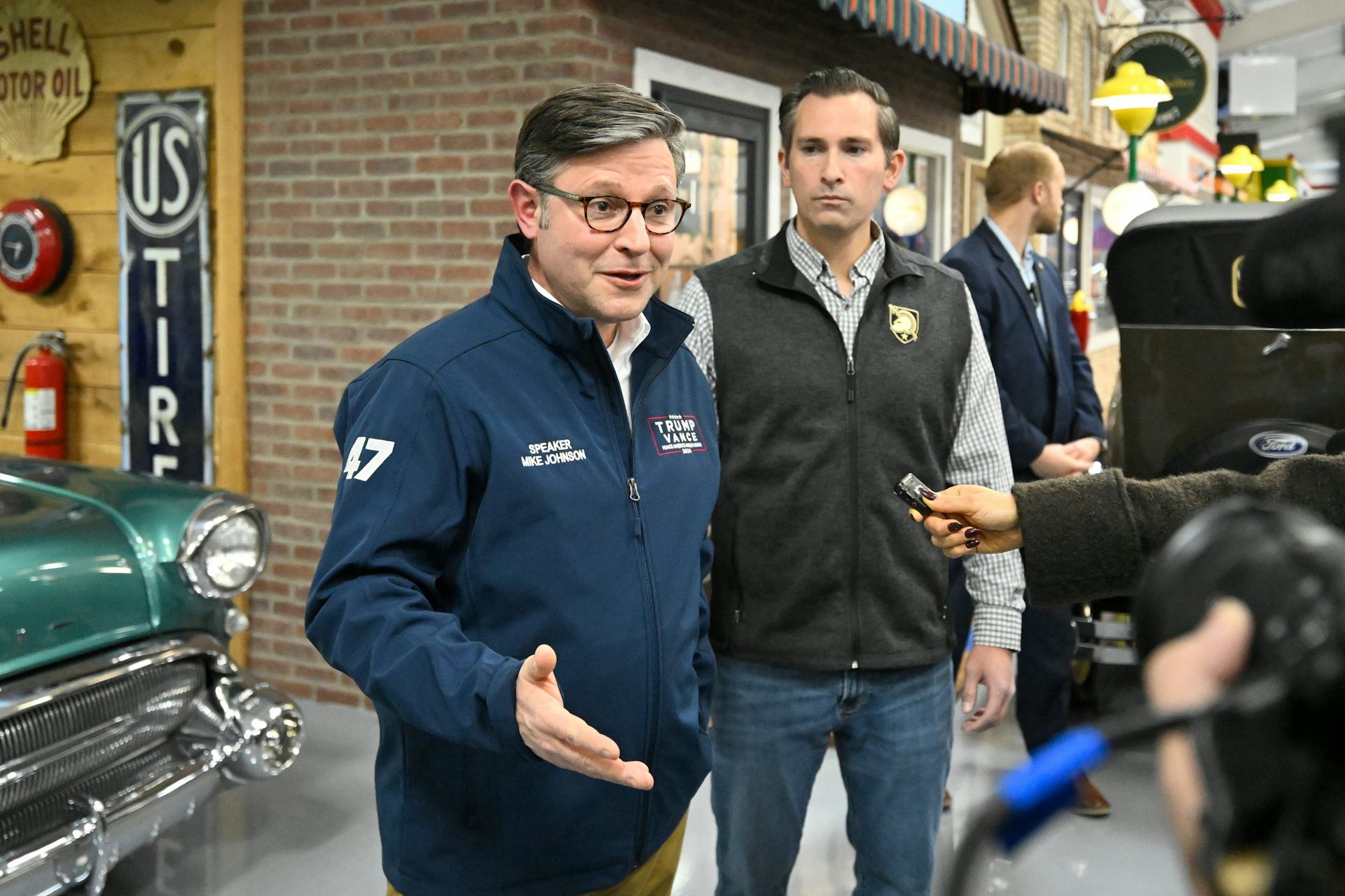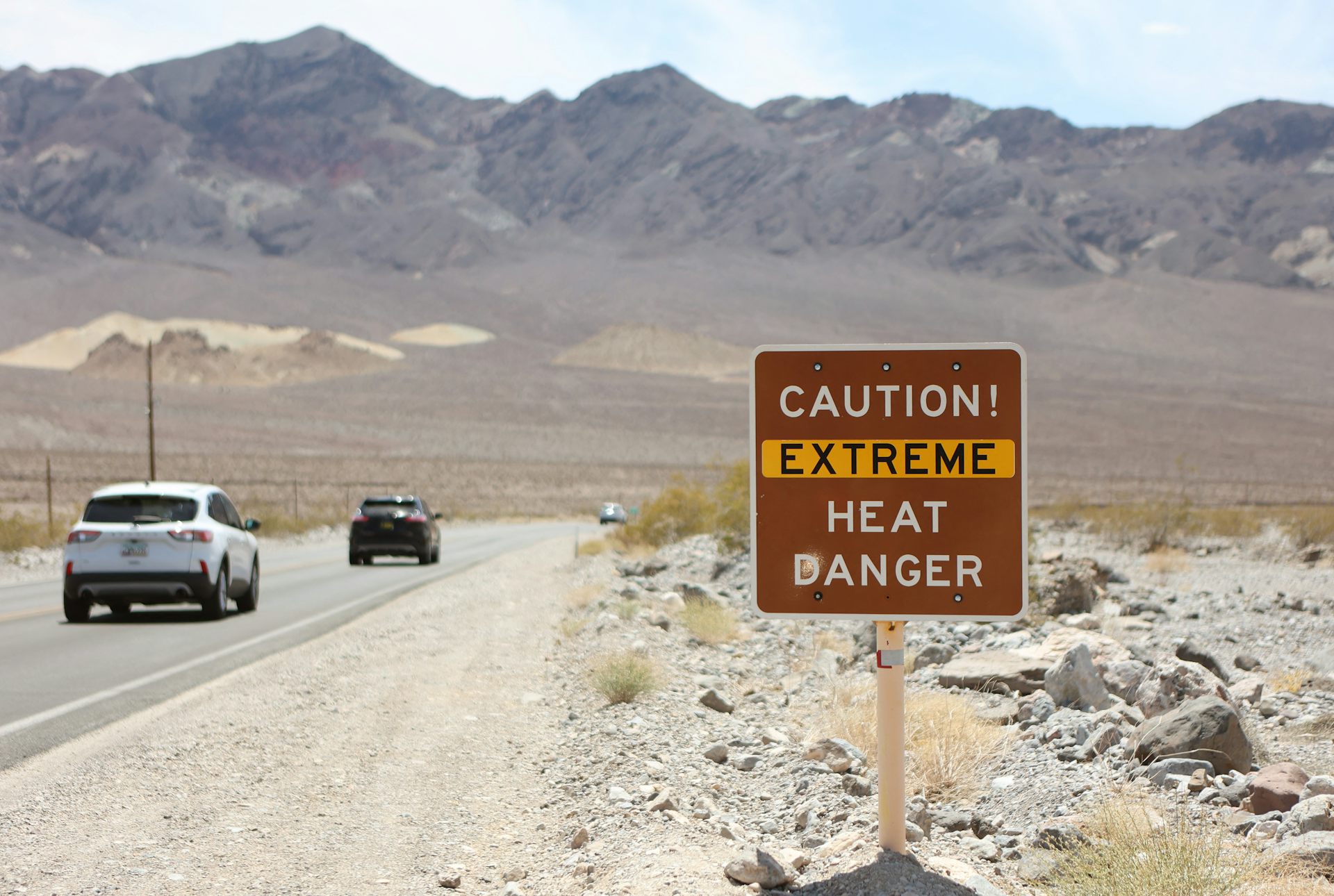What belief in extraterrestrial visitors to Earth reveals about trust in elections
Americans who believe aliens have visited Earth are more likely than disbelievers to say that Joe Biden is not the legitimate winner of the 2020 presidential election.

Partisanship is not enough to explain why so many Americans – mostly Republicans – distrust the outcome of the 2020 presidential election.
As scholars in political behavior and methods, we are aware of another factor in voters’ thinking that has increased right alongside electoral distrust: Americans’ beliefs in conspiracy theories, especially those that express mistrust of government officials.
Our research, which has not yet been published, finds that these two beliefs are linked – to the extent that Americans who believe aliens have visited Earth are more likely than disbelievers to say that Joe Biden is not the legitimate winner of the 2020 presidential election. As conspiracy theory beliefs grow in the U.S., we expect a corresponding drop in public trust in elections.
Polling voters
Drawing on academic literature focused on trust in electoral processes, we decided to look specifically at voters’ conspiratorial beliefs. On Jan. 19, 2021, the eve of President Joe Biden’s inauguration, we conducted a survey of 633 Louisiana registered voters, selected at random. We asked a series of questions about their religious beliefs, their beliefs in extraterrestrial life and whether Joe Biden had been the rightful winner of the 2020 U.S. presidential election.
The key questions we asked were:
- Do you believe that there is life in the universe other than on Earth?
- Do you believe that extraterrestrials have visited the Earth?
- Do you believe that Joe Biden is the rightful winner of the 2020 U.S. presidential election?
We weighted the answers to reflect the statewide population balance of gender, age and race.
Aliens and electoral trust
We found that Democrats and third-party and independent voters were somewhat more inclined to believe conspiracy theories than Republicans. That fits with other recent surveys indicating that both parties do indeed have conspiratorial leanings, though the partisan divide may influence which particular conspiracies a person believes.
Belief in conspiracy theories – the idea that secret causes are behind real-world events – have circulated broadly in the pandemic crisis and election cycle in part because of the evolution of social media networks and their ability to create echo chambers, communities where people encounter only those who agree with them.
The QAnon movement, which holds the election was fraudulent in particular, has developed from periphery to a growing mainstream group with widespread influence.
Conspiracist thinking fits well with Donald Trump’s false claims that the election was fraudulent. QAnon believers consider the fact that he has lost all the legal challenges attempting to prove his claim to be more evidence that powerful and secretive forces are at work to steal the election and hide the truth from the public.
Most of our survey’s respondents – 59.7% – believe the defensible possibility that life exists elsewhere in the universe than just on Earth. And 32.3% – nearly one-third – of the respondents believe that aliens have actually visited Earth, though governments continue to deny any such thing. Third-party and independent voters are more likely to believe this than Democrats or Republicans.
We also found that just over half of the respondents did not believe Biden was rightfully elected president. There was a clear partisan split there, with 74% of Democrats trusting the results but only 12% of Republicans believing them. Third-party and independent voters were more evenly divided, with 36% trusting the results, 45% not believing them and 19% unsure.
Both of these beliefs express doubt about government officials’ truth-telling: In one, leaders are covering up an alien visit, and in the other, they are misleading the public about election results. When we look at people who share both of these beliefs, we find that out of the respondents who believe aliens have visited Earth, 57.6% also believe Biden was not rightfully elected president.
The connection between belief in ET visitation and electoral mistrust is statistically significant, even when controlling for various other determinants such as partisanship, age, race and sex.
These findings are limited because we surveyed only Louisiana voters. But we believe voters’ beliefs could be similar in several other states where Trump also won by double-digit margins, including Alabama, Idaho, Kansas and West Virginia.
While a specific belief in extraterrestrial visits to Earth may not be directly causing a belief in election fraud, these two ideas are conspiracy-oriented: People who believe the government is lying about one are more likely to believe officials are hiding the truth about the other.
The authors do not work for, consult, own shares in or receive funding from any company or organization that would benefit from this article, and have disclosed no relevant affiliations beyond their academic appointment.
Read These Next
How a largely forgotten Supreme Court case can help prevent an executive branch takeover of federal
An FBI raid on a Georgia elections facility has sparked concern about Trump administration interference…
Do special election results spell doom for Republicans in 2026?
Special election results have anticipated recent midterm outcomes. With Democrats now overperforming,…
The intensity and perfectionism that drive Olympic athletes also put them at high risk for eating di
Athletes in sports where weight and body image come into play, such as figure skating and wrestling,…





